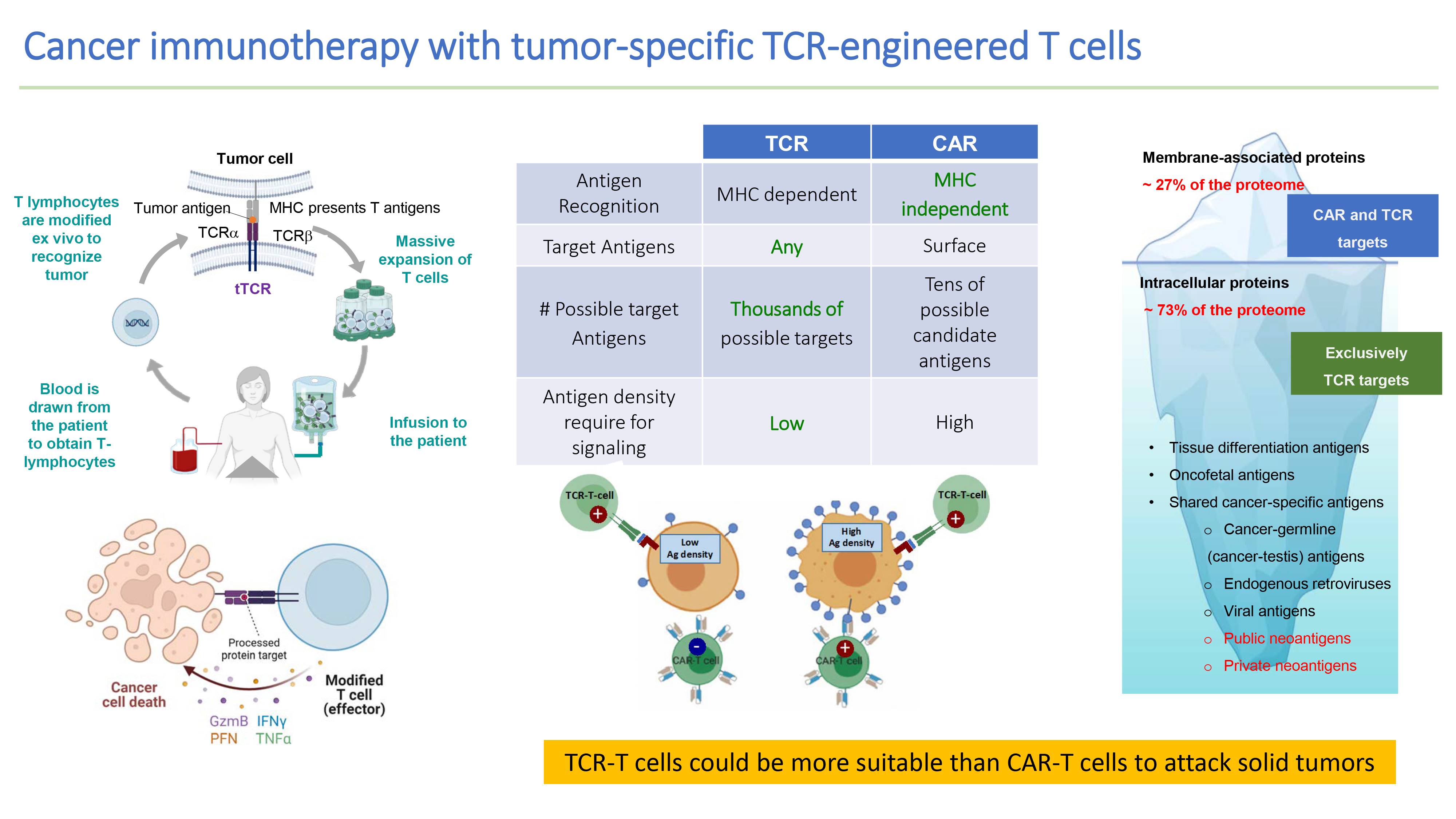Adoptive Cell Therapy
"Using gene modification techniques, we are regulating intracellular immune checkpoints that are key to T cell function and differentiation with the aim of improving the therapeutic efficacy of adoptive cell transfer".
DR. SANDRA HERVÁS STUBBS RESEARCHER. ADOPTIVE CELL THERAPY RESEARCH GROUP
The immunology research group in Adoptive Cell Therapy at Cima, integrated in the Cancer Center Clínica Universidad de Navarra, focuses on the study of T lymphocytes and the development of T-cell therapy strategies for cancer treatment.
T-cell therapy is a new type of advanced and personalized medicine that uses the patient's own lymphocytes to fight tumors. In these approaches, T cells are isolated from patients, given new competencies while expanded to large numbers, and, finally, they are infused back into the patient. This type of therapy has achieved important results in hematological tumors and some solid tumors, such as melanoma, but more effective strategies need to be developed to extend this therapy to more types of cancer.
Cell therapy approaches include:
- Tumor-infiltrating T lymphocytes (TILs), which possess a natural receptor, known as TCR, that allows them to recognize tumors.
- T cells genetically modified to express a tumor-specific transgenic receptor. Depending on the type of transgenic receptor we can distinguish between: TCR-T cell therapies (modified to express a tumor-specific TCR), and CAR-T cell therapies (expressing a chimeric receptor, known as CAR, capable of recognizing a tumor antigen).
Our research is focused on improving the efficacy of T-cell therapy for the treatment of solid tumors, with special attention to the development of TCR therapies, given the abundance of tumor antigens that can only be recognized by these receptors.

Dra. Sandra Hervás
GROUP LEADER
| +34 948 194 700 | Ext. 81 3005 | |
| mshervas@unav.es | |
| Research profile |
Oncology research integrated in the
Cancer Center Clinica Universidad de Navarra

Objectives of the Adoptive Cell Therapy Research Group
We investigate new methods to identify patient-specific anti-tumor TCRs.
We seek to improve CAR-T therapy in solid tumors through the local release of cells and the use of CAR-targeting vaccine.
We study the qualities that a T lymphocyte must have to be a good "performer" in cell therapy.
We develop our research in preclinical models that reflect the difficulties of T-cell therapy in the clinic.
We collaborate in the analysis of the T-cell response in clinical trials.
In short, we seek to enhance immunotherapy treatments through cross-cutting research.
FROM THE LABORATORY DIRECTLY TO THE CLINIC
Personalized cancer treatment
Our group has identified molecular characteristics of tumor-specific T cells that allow the identification of TCR candidates for TCR-T therapy. This multidisciplinary study opens the door to personalized treatment of patients with this disease
Meet the research team






Selected publications
Human T cells engineered with an HLA-A2-restricted murine T-cell receptor targeting glypican 3 effectively control human hepatocellular carcinoma in mice
November 26, 2024
Hepatology
FOXP3 expression diversifies the metabolic capacity and enhances the efficacy of CD8 T cells in adoptive immunotherapy of melanoma
January 04, 2023
Molecular Therapy
Epitope spreading driven by the joint action of CART cells and pharmacological STING stimulation counteracts tumor escape via antigen-loss variants
November 15, 2021
Journal of Immunotherapy of Cancer
The mutational load and a T-cell inflamed tumour phenotype identify ovarian cancer patients rendering tumour-reactive T cells from PD-1 + tumour-infiltrating lymphocytes
March 01, 2021
British Journal of Cancer
Scientific activity of the
Adoptive Cell Therapy Research Group
Latest scientific publications
- Nigrostriatal degeneration determines dynamics of glial inflammatory and phagocytic activity Apr 12, 2024 | Magazine: Journal of Neuroinflammation
- Serum levels of S-100 protein are directly proportional to the size, number, thickness and degree of cellularity of congenital melanocytic nevi Nov 15, 2023 | Magazine: Journal of the American Academy of Dermatology
- Intratumoral co-injection of NK cells and NKG2A-neutralizing monoclonal antibodies Oct 2, 2023, | Magazine: EMBO Molecular Medicine
- mRNAs encoding IL-12 and a decoy-resistant variant of IL-18 synergize to engineer T cells for efficacious intratumoral adoptive immunotherapy Mar 17, 2023 | Magazine: Cell Reports. Medicine

